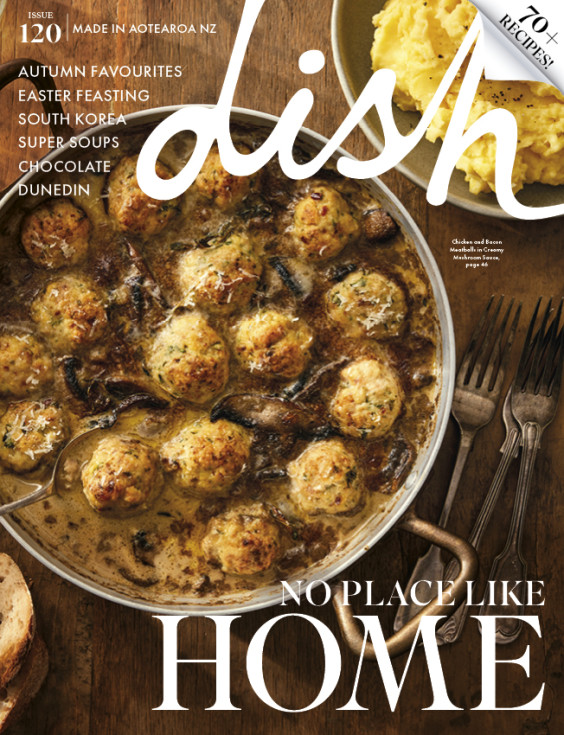Of land and sea
Photography by Nicola Edmonds.
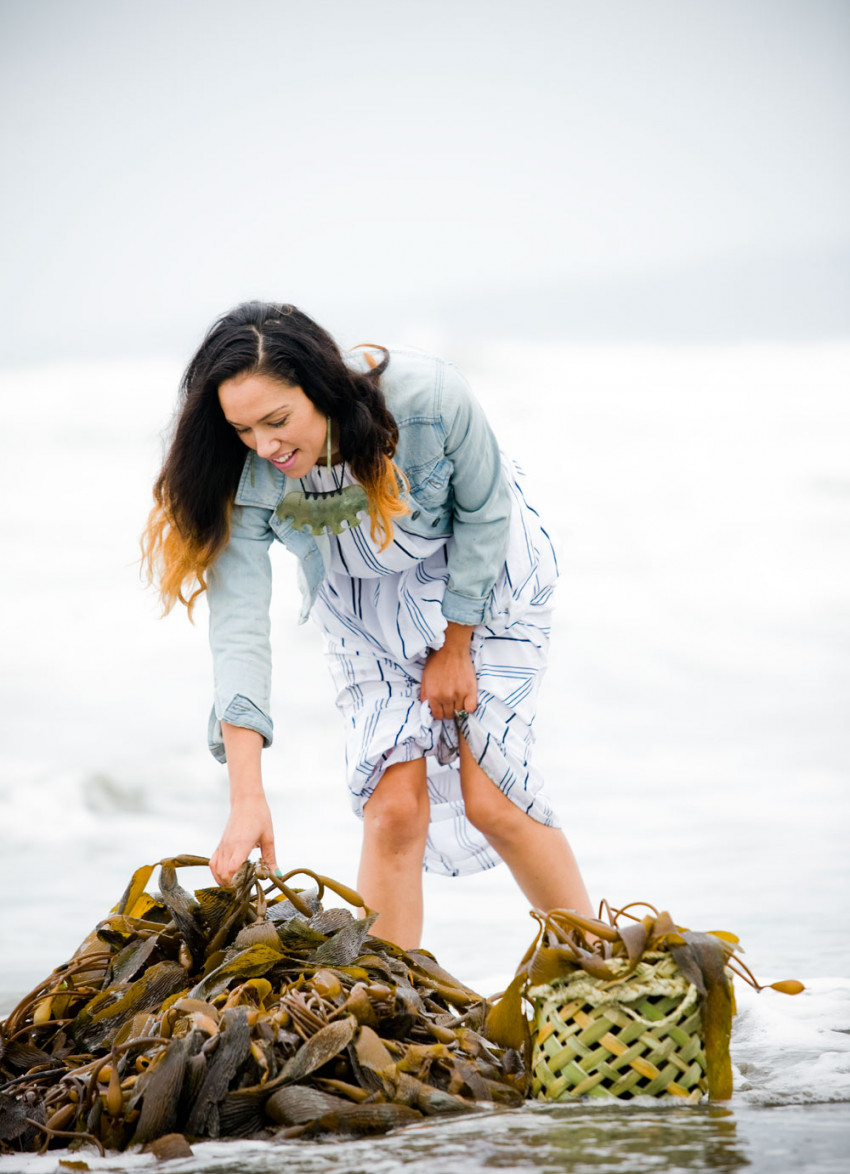
After a less-than-subtle nudge from her grandfather, Jade Temepara sowed the seeds for what has now grown into a cafe, cooking school, community project and a wonderful exploration and celebration of Māori culture and flavour.
The seed for Kākano, a cafe that has lately taken root in central Christchurch was first sown 12 years ago. Back then Jade Temepara says she was just a silverbeet and potatoes sort of girl. When her grandad, Colin Reihana, arrived with a handful of purple peruperu seed potatoes and an insistence that his granddaughter give over the entire backyard to grow them in, she told him that she was too young to grow spuds. Plus, her kids wanted a trampoline. “Grass is a waste of time,” was his gruff reply.
Grandad went on to explain these potatoes had fed five generations of their family. Not one of Colin’s seven sons had planted gardens of their own, so the responsibility for the whakapapa of her family and forebears now rested upon Jade’s shoulders. “So I took the damn potatoes and planted them.”
That first harvest was to prove a beauty and was the beginnings of Jade’s passion for seed-saving and nutrition for her family and community. “After that I was changed. I just started putting in as many food crops as I could.”
Together with her husband, Wiki, she converted 400 of their 900 square-metre property into food gardens. Jade tells of the endless stream of passers-by stopping to look in or sample the fruits of her efforts. Many were elderly and in wheelchairs. “So I booted the fence down and let everyone have a free- for-all. Much to the horror of my husband.”
Inspired by the needs of the young mums she was encountering during her work for single-parent support organisation "Borthright", the young crusader went on to establish "Hand Over A Hundy" – a non-profit programme which provides member families with a gardening mentor for one year, along with $100 worth of resources. The programme has since become a registered charity, with families waitlisted nationwide for next season.
In her quest to learn more about nutrition, Jade has studied nutrient-dense food sources, organic growing, biological husbandry and soil care and then looked at ways to intertwine these skills with the Māoritanga and traditions of her people. The importance of a central hub to pass on what she was learning soon became clear. “If you just send someone home with a recipe it actually doesn’t do anything,” she believes. “It’s hard to affect change if you’re not doing it consistently.”
Presenting this mission to the Whānau Ora commissioning agency for the South Island, Te Pūtahitanga o Te Waipounamu, Jade and Wiki were able to secure funding to establish their own social enterprise cafe and cookery school, to which they gave the name Kākano, the Māori word for seed.
A small prefab cabin houses the cafe, which was officially opened in February 2016 and is almost overshadowed by 240 square metres of raised-bed gardens, overflowing with herbs and vegetables, many of which are native to New Zealand.
Jade fostered and fed a posse of helpers from the homeless community, often visitors at the nearby public library, who were keen to help build, care for and watch over the gardens as they took shape. They became a vital ingredient of the crew of more than 100 volunteers, working eight hours a day over a stretch of five hot weeks of the Canterbury summer.
Jade says the garden is a wonderful icebreaker – she’s also had curious businessmen “turn up in their Mercedes”, who went on to roll up their sleeves and help out for the day.
Due to Kākano’s transient location – situated on land classed as semi-permanent – the power supply is sometimes sketchy and everything is designed to be “lifted and shifted” as Jade puts it, the kitchen included.
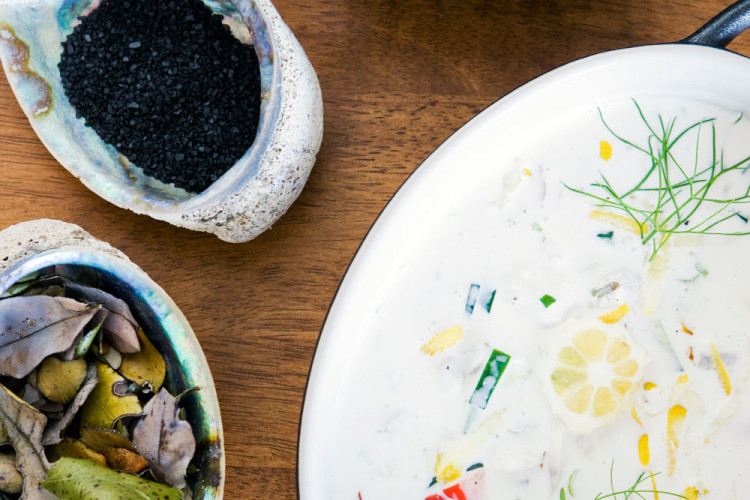
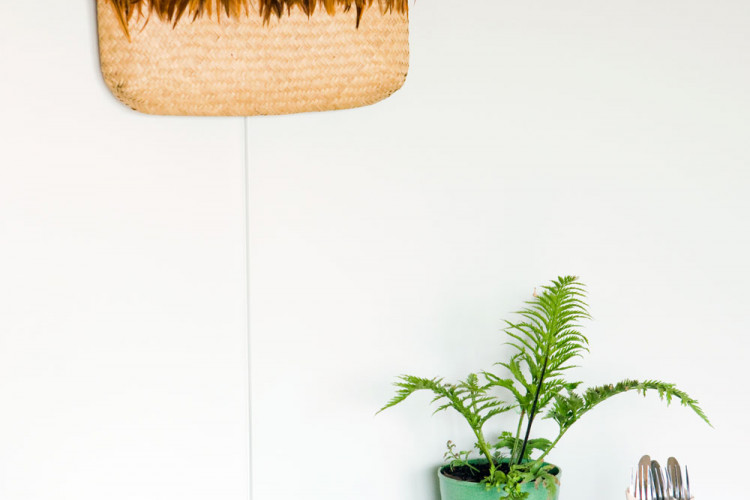
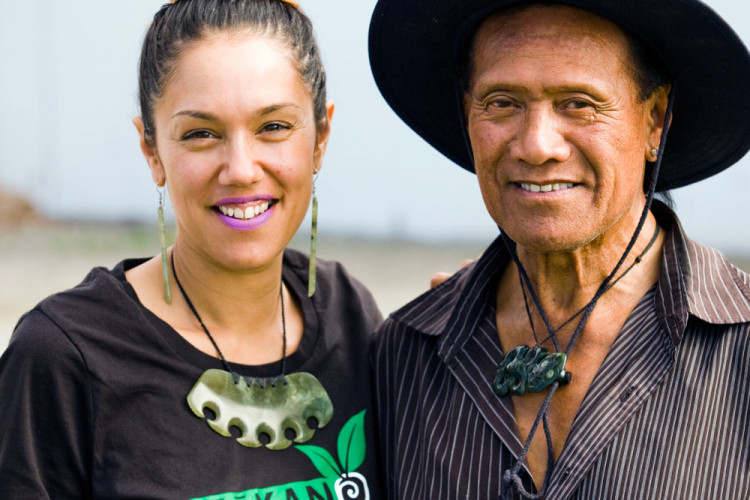
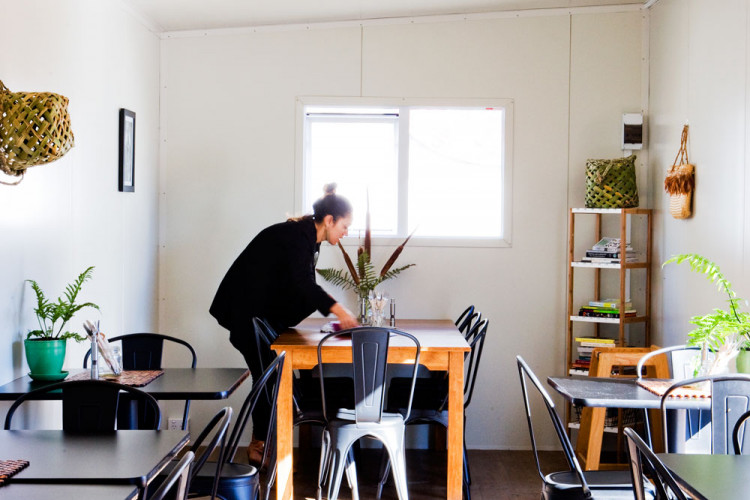
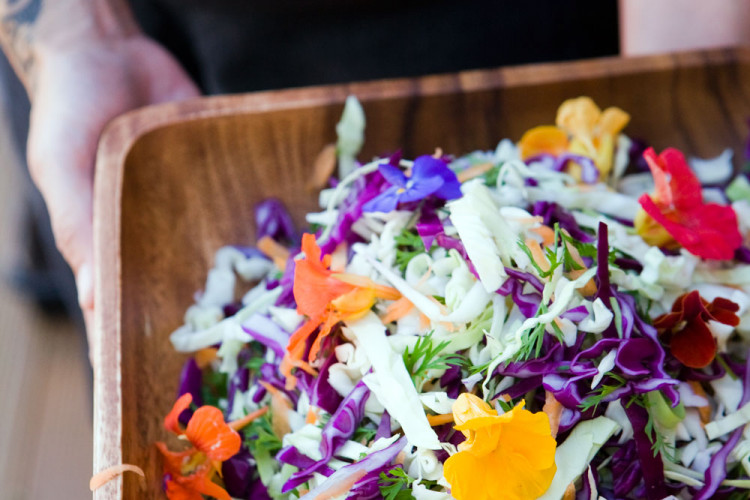
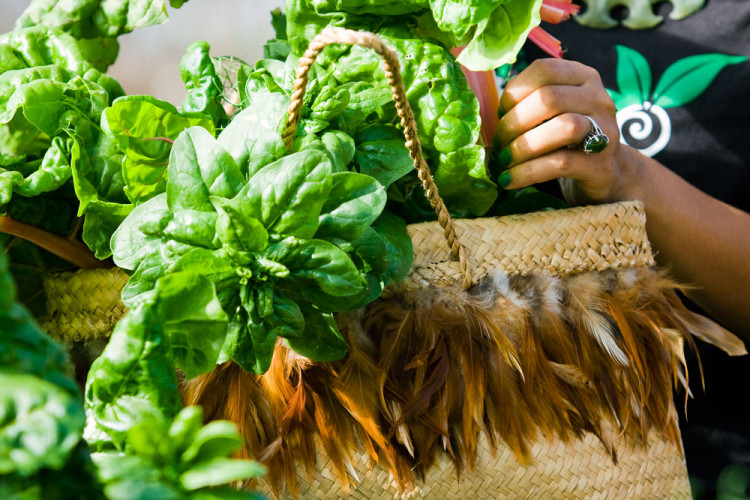
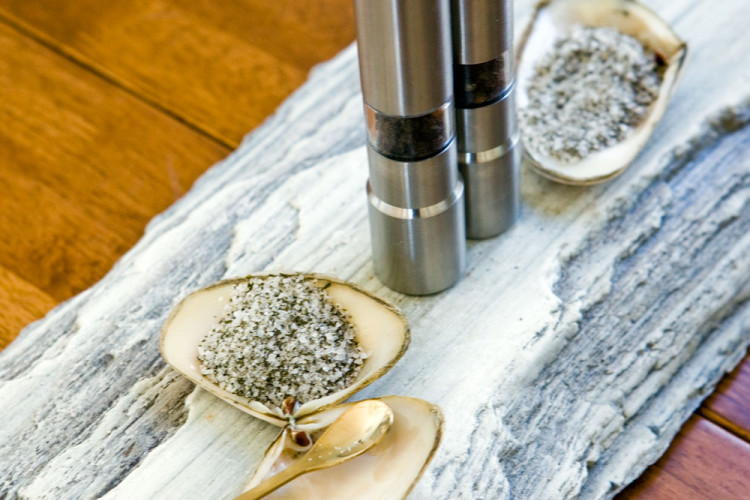
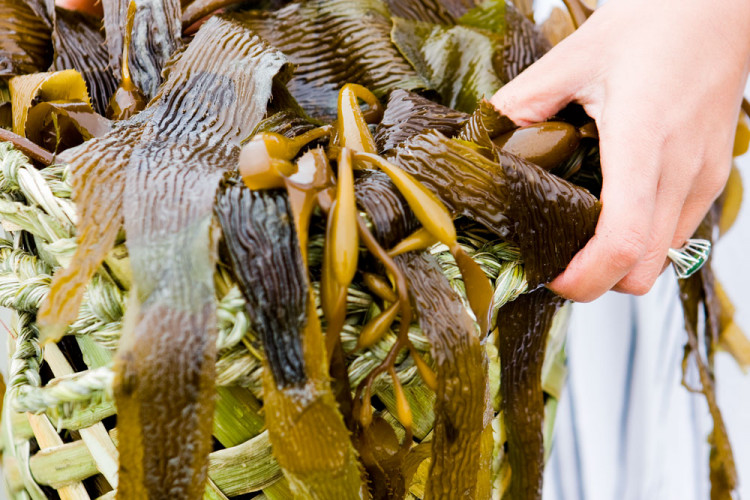
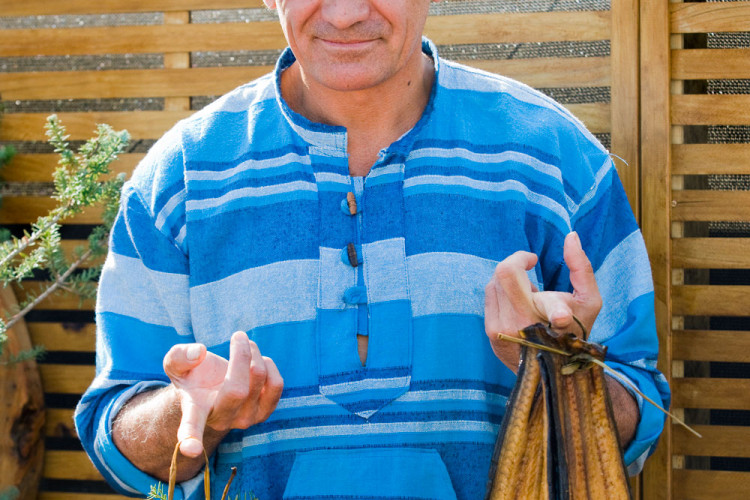
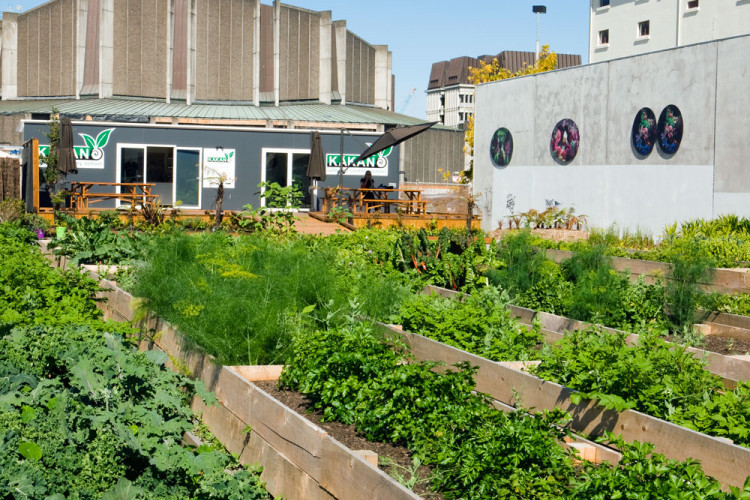
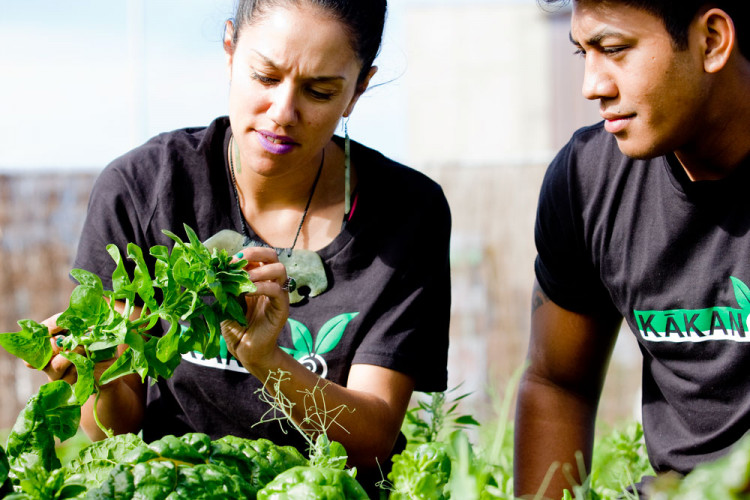
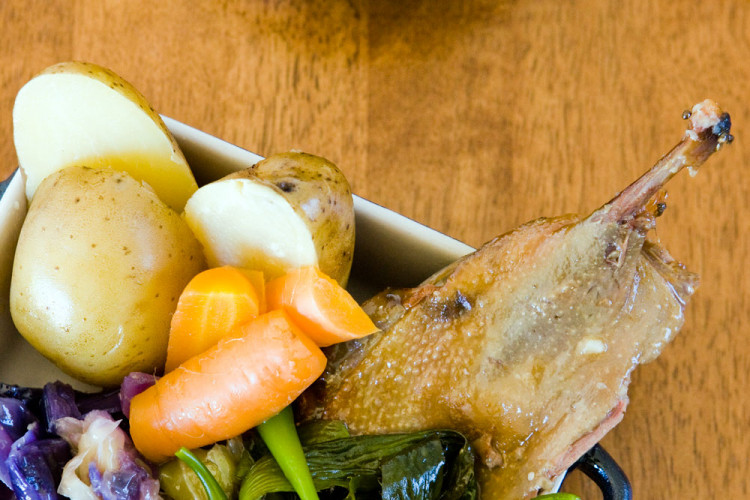
Diana Eketone has been hard at work in the galley-shaped confines of the small food truck, parked next door, since Kākano opened. “She’s magnificent at being able to translate how I think into our menus,” Jade says of her friend. The two have been close since they were 11 years old. Diana has found cooking with mainly indigenous ingredients has been a learning curve but one she’s enjoying. As for the muttonbird? “I’m learning to love the tītī,” she says with a giggle, “I’m not a massive fan of the flavour... But I’m getting there.”
The succulent muttonbirds, which figure so prominently on the Kākano menu, are harvested from a small group of islands south of Stuart Island. Jade’s family have held customary title to the harvest from this area for more than 300 years, a right entitled only to those who have a blood connection to the land and descend from a line of chiefs. Jade describes this deep connection with pride and says it’s a privilege to be able to share this gift with those who visit the cafe.
Though the cafe is attracting diners from all corners of the city, the Kākano menu was mainly shaped by Jade’s drive to appeal to the Māori community.
She believes her own people are in greatest need of re-learning the importance of healthful food in their diets and has used her knowledge to find ways to blend nutritious and indigenous foods into contemporary dishes, which also just happen to be very difficult to resist.
Kākano’s carrot and beetroot cakes, for example, are made from organic ingredients infused with hemp and harakeke oils and come sprinkled with harakeke seeds. The richly savoury “tītī pots”, which are a daily feature on the menu, pair succulent and salty muttonbird meat with steamed organic vegetables. Salads are served flower-studded and freshly cut from the garden beds, or as bright bowls of vibrant green seaweeds that are harvested from the Canterbury coast.
The recipe for Kākano’s “manuka smoked eggs” is a close-kept secret, but the plates of eggs, served on rich, dark rye bread, cast a mysterious and delicious trail of smoky aromas in their wake. Jade explains they’re still testing boundaries but, as a relative trailblazer for the use of these indigenous food sources in a South Island setting, is firm in setting a precedent for the cafe’s future.
“We need to celebrate who we are and what we are and all of our seed is that – it’s our ancestral knowledge passed down for the future.” — Jade Temepara
Her kitchen team works to the challenges of weather and supply – many of the indigenous ingredients have short seasons and so are dried or preserved to extend their use. Dried piko piko is ground down for pesto and horopito and kawakawa leaves and stems are dried and powdered to add flavour to dishes.
Māori chef Charles Royal, she says, has been a great role model in the contemporary use of indigenous foods and supplies the cafe with some of the herbs that can only be grown in the North Island. Jade also mentions Kay Baxter, co-founder and director of the Koanga Institute, as a source of inspiration and starting point for what has become the largest collection of heritage seed in the South Island. The Temeparas were fostering 280 different varieties, at last count.
“We need to celebrate who we are and what we are,” Jade says of her philosophy, “and all of our seed is that – it’s our ancestral knowledge passed down for the future.”
Kākano hāngī and movie nights are already underway and cookery classes will begin in May with topics including fish filleting, bone broths and fermentation. “Our cafe is our day-to-day face of who we are and what we do – it’s our extended lounge almost,” Jade explains. “Māori people are known for their hospitality. We want people to feel that, because it breaks down so many walls.”
Grandad comes for lunch almost every day and has eaten his way through everything on the menu. The elder is a repository for the authentic tastes of these food sources and hasn’t been disappointed by his granddaughter’s efforts. “He’s loving it,” she says. “He’s our most regular customer who never pays. Which is fine. He’s bought me a lot of ice creams in my lifetime.”
100 Peterborough Street, Christchurch
kakanocafe.co.nz
latest issue:
Issue #120
As the days become shorter, and the nights cooler, the latest issue is perfectly timed to deliver delicious autumn dishes. From recipes using fresh seasonal produce such as feijoas and apples, to spectacular soothing soups and super-quick after-work meals in our Food Fast section, we’ve got you covered. With Easter on the horizon, we feature recipes that will see you through breakfast, lunch and dinner over a leisurely weekend holiday, and whip up chocolatey baking treats sure to please. We round up delicious dinners for two and showcase a hot new Korean cookbook before heading south to Dunedin to check out all that’s new in food and dining.The latest issue of dish is on sale NOW at all good bookstores and supermarkets – don’t miss it!

